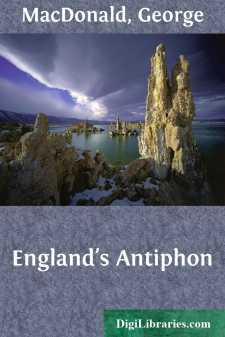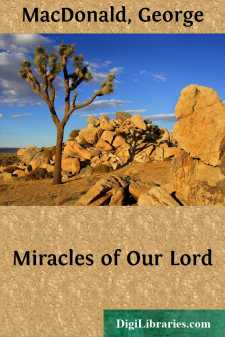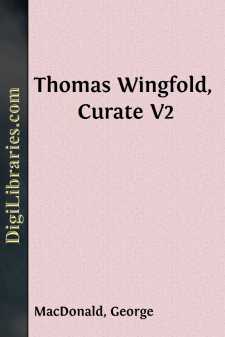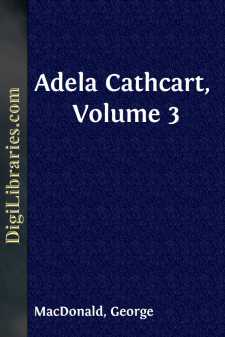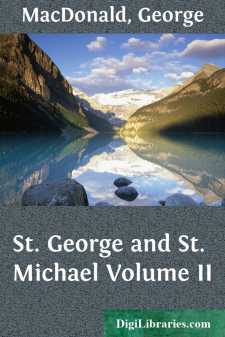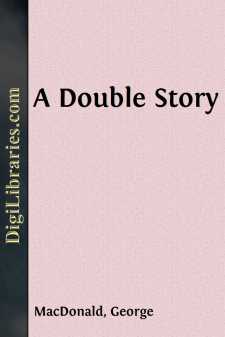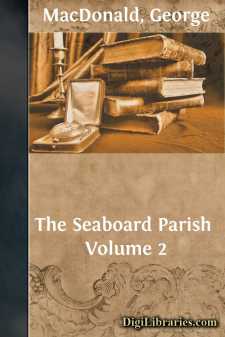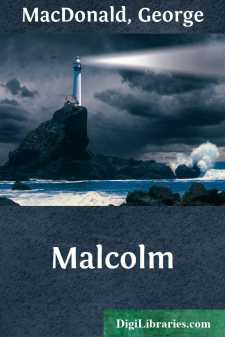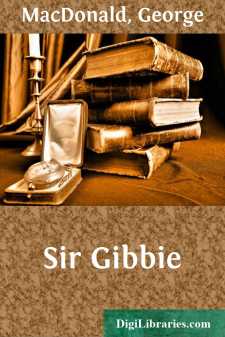Categories
- Antiques & Collectibles 13
- Architecture 36
- Art 48
- Bibles 22
- Biography & Autobiography 815
- Body, Mind & Spirit 144
- Business & Economics 28
- Children's Books 18
- Children's Fiction 14
- Computers 4
- Cooking 94
- Crafts & Hobbies 4
- Drama 346
- Education 58
- Family & Relationships 59
- Fiction 11835
- Games 19
- Gardening 17
- Health & Fitness 34
- History 1378
- House & Home 1
- Humor 147
- Juvenile Fiction 1873
- Juvenile Nonfiction 202
- Language Arts & Disciplines 89
- Law 16
- Literary Collections 686
- Literary Criticism 179
- Mathematics 13
- Medical 41
- Music 40
- Nature 180
- Non-Classifiable 1768
- Performing Arts 7
- Periodicals 1453
- Philosophy 65
- Photography 2
- Poetry 896
- Political Science 203
- Psychology 44
- Reference 154
- Religion 515
- Science 126
- Self-Help 85
- Social Science 83
- Sports & Recreation 34
- Study Aids 3
- Technology & Engineering 59
- Transportation 23
- Travel 463
- True Crime 29
George MacDonald
George MacDonald was a Scottish author, poet, and Christian minister known for his pioneering work in the genre of fantasy literature. Born on December 10, 1824, he influenced many famous writers, including C.S. Lewis and J.R.R. Tolkien, through his imaginative storytelling and profound spiritual themes. MacDonald's notable works include "Phantastes" and "The Princess and the Goblin," which continue to be celebrated for their rich narrative and moral depth.
Author's Books:
Sort by:
by:
George MacDonald
CHAPTER I. SACRED LYRICS OF THE THIRTEENTH CENTURY. In the midst of wars and rumours of wars, the strife of king and barons, and persistent efforts to subdue neighbouring countries, the mere effervescence of the life of the nation, let us think for a moment of that to which the poems I am about to present bear good witnessвÐâthe true life of the people, growing quietly, slowly,...
more...
by:
George MacDonald
I. INTRODUCTION. I have been requested to write some papers on our Lord's miracles. I venture the attempt in the belief that, seeing they are one of the modes in which his unseen life found expression, we are bound through them to arrive at some knowledge of that life. For he has come, The Word of God, that we may know God: every word of his then, as needful to the knowing of himself, is needful...
more...
by:
George MacDonald
CHAPTER I. RACHEL AND HER UNCLE. It was nearly dark when they arrived again at the lodge. Rachel opened the gate for them. Without even a THANK YOU, they rode out. She stood for a moment gazing after them through the dusk, then turned with a sigh, and went into the kitchen, where her uncle sat by the fire with a book in his hand. "How I should like to be as well made as Miss Lingard!" she said,...
more...
by:
George MacDonald
CHAPTER I. THE PARLOR. In the dusk of the old-fashioned best room of a farm-house, in the faint glow of the buried sun through the sods of his July grave, sat two elderly persons, dimly visible, breathing the odor which roses unseen sent through the twilight and open window. One of the two was scarcely conscious of the odor, for she did not believe in roses; she believed mainly in mahogany, linen, and...
more...
by:
George MacDonald
CHAPTER I. MY UNCLE PETER.—CONTINUED. "It was resolved that on the same evening, Chrissy should tell my uncle her story. We went out for a walk together; and though she was not afraid to go, the least thing startled her. A voice behind her would make her turn pale and look hurriedly round. Then she would smile again, even before the colour had had time to come back to her cheeks, and...
more...
by:
George MacDonald
As soon as supper was over in the housekeeper's room, Dorothy sped to the keep, where she found Caspar at work. 'My lord is not yet from supper, mistress,' he said. 'Will it please you wait while he comes?' Had it been till midnight, so long as there was a chance of his appearing, Dorothy would have waited. Caspar did his best to amuse her, and succeeded,—showing her one...
more...
by:
George MacDonald
There was a certain country where things used to go rather oddly. For instance, you could never tell whether it was going to rain or hail, or whether or not the milk was going to turn sour. It was impossible to say whether the next baby would be a boy, or a girl, or even, after he was a week old, whether he would wake sweet-tempered or cross. In strict accordance with the peculiar nature of this...
more...
by:
George MacDonald
CHAPTER I. ANOTHER SUNDAY EVENING. In the evening we met in Connie's room, as usual, to have our talk. And this is what came out of it. The window was open. The sun was in the west. We sat a little aside out of the course of his radiance, and let him look full into the room. Only Wynnie sat back in a dark corner, as if she would get out of his way. Below him the sea lay bluer than you could...
more...
by:
George MacDonald
"Na, na; I hae nae feelin's, I'm thankfu' to say. I never kent ony guid come o' them. They're a terrible sicht i' the gait." "Naebody ever thoucht o' layin' 't to yer chairge, mem." "'Deed, I aye had eneuch adu to du the thing I had to du, no to say the thing 'at naebody wad du but mysel'. I hae had nae leisur' for...
more...
by:
George MacDonald
THE EARRING. "Come oot o' the gutter, ye nickum!" cried, in harsh, half-masculine voice, a woman standing on the curbstone of a short, narrow, dirty lane, at right angles to an important thoroughfare, itself none of the widest or cleanest. She was dressed in dark petticoat and print wrapper. One of her shoes was down at the heel, and discovered a great hole in her stocking. Had her black...
more...


